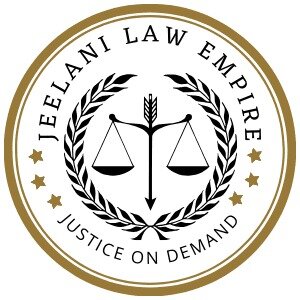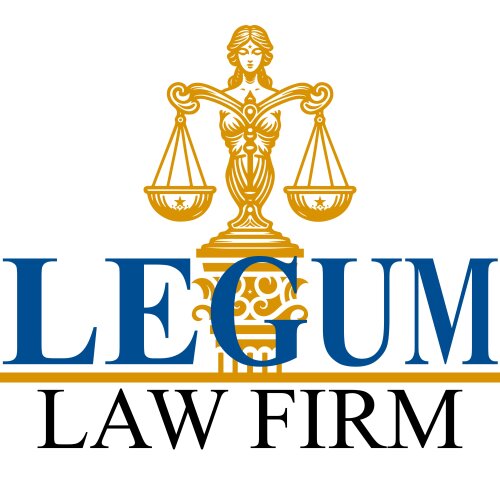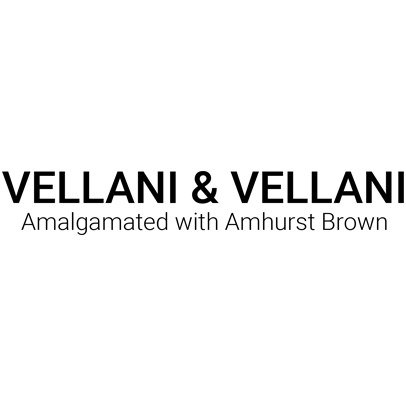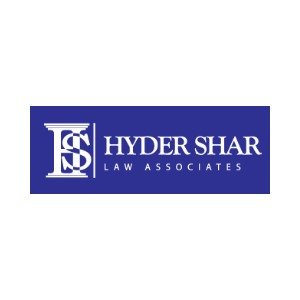Best Mining Law Lawyers in Karachi
Share your needs with us, get contacted by law firms.
Free. Takes 2 min.
List of the best lawyers in Karachi, Pakistan
About Mining Law in Karachi, Pakistan
Mining Law in Karachi, Pakistan, governs the exploration, extraction, and processing of mineral resources within the region. The legal framework aims to ensure that the mining sector operates sustainably, fairly, and in compliance with national and provincial regulations. Most mining activities are subject to licensing, environmental controls, and safety standards. Although Karachi itself is a major urban and industrial center, its legal environment still considers the broader context of Sindh province, which is known for its rich mineral reserves such as coal, limestone, and industrial minerals. Legal specialists ensure that both businesses and individuals comply with the necessary requirements and are protected under the law when engaging in mining-related activities.
Why You May Need a Lawyer
Engaging in mining can be legally complex due to the requirements for permits, environmental approvals, compliance with safety standards, and land use regulations. Here are a few situations where a lawyer's expertise becomes essential:
- Securing mining licenses or prospecting permits
- Negotiating land use agreements with private or government landowners
- Adhering to environmental protection laws
- Resolving disputes over land ownership or mineral rights
- Complying with health and safety regulations for workers
- Addressing royalty and taxation issues related to extracted commodities
- Defending against or initiating legal claims in mining-related conflicts
A legal specialist can provide guidance, ensure all statutory requirements are met, and help avoid costly disputes or penalties.
Local Laws Overview
Mining in Karachi operates under a mix of federal and provincial legislation, with the Sindh Mines and Minerals (Regulation) Act, 2021, and related rules as the primary legal instruments in Sindh province. Key aspects include:
- Licensing and Permits: All mining and exploration activities require valid permits issued by the Directorate General of Mines and Minerals, Sindh.
- Land Acquisition: Agreements must be secured with landowners or the government for any land used in mining operations.
- Environmental Regulations: Environmental Impact Assessments (EIA) and compliance with environmental protection laws are compulsory for most projects.
- Worker Safety: The Mines Act 1923 and relevant rules stipulate workplace safety requirements.
- Royalty and Revenue: Mining entities are subject to fees and royalties, which must be reported and paid as per the law.
- Dispute Resolution: Legal frameworks provide for administrative and judicial remedies in case of disputes over licenses, rights, or regulatory infractions.
Compliance with both federal and provincial legislation is essential for successful and lawful mining operations.
Frequently Asked Questions
What permits are required to start a mining operation in Karachi?
You must obtain a mining lease or prospecting license from the Directorate General of Mines and Minerals, Sindh. Additional permits may be needed for environmental and land use clearances.
Who owns the minerals found on private or government land?
In Pakistan, minerals are generally owned by the state, regardless of surface land ownership. Lease arrangements allow extraction, subject to licensing and royalty payments.
How long does it take to process a mining license application?
Processing times can vary, but typically it takes several months. The process involves land verification, environmental clearances, and security vetting.
What are the main environmental requirements in mining activities?
Companies must conduct an Environmental Impact Assessment (EIA) and comply with provincial and national environmental regulations throughout their operations.
Can foreign companies apply for mining rights in Karachi?
Yes, foreign entities can apply, but they must comply with local laws, registration requirements, and may need to partner with local firms or fulfill specific investment conditions.
What safety regulations apply to mining sites?
Mining operations must follow the Mines Act 1923 and the Sindh Safety Rules, which cover ventilation, worker safety, emergency responses, and proper training.
How are mining disputes resolved?
Disputes can be resolved through administrative hearings or by filing cases in civil courts or relevant tribunals, depending on the nature of the dispute.
What taxes and royalties are applicable to mining operations?
Mining is subject to provincial royalties, lease payments, and general tax obligations such as income tax and sales tax, depending on the mineral and scale of operation.
Can landowners prevent mining on their property?
While landowners can contest mining rights, the ultimate authority typically rests with the government. Compensation processes exist for affected landowners.
Is small-scale or artisanal mining legal in Karachi?
Small-scale or artisanal mining is legal if conducted under the proper licenses and in compliance with relevant health, safety, and environmental regulations.
Additional Resources
If you need more information or assistance regarding Mining Law in Karachi, you may contact or consult with the following organizations or governmental bodies:
- Directorate General of Mines and Minerals, Sindh
- Sindh Environmental Protection Agency (SEPA)
- Pakistan Mineral Development Corporation (PMDC)
- Sindh Board of Investment (SBI)
- Geological Survey of Pakistan
- Local Bar Associations specializing in Mining Law
These resources can provide forms, guidelines, and regulatory updates necessary for starting or running mining operations in Karachi.
Next Steps
If you require legal assistance in Mining Law in Karachi, Pakistan, consider these steps:
- Gather all relevant documentation, including land records, prior permits, and correspondence with local authorities.
- Document your objectives and any specific concerns or disputes regarding mining rights, permits, or compliance.
- Contact a reputable law firm or lawyer specializing in Mining Law for a consultation.
- Engage your lawyer to review your situation, advise on compliance, prepare applications, or represent your interests in negotiations or disputes.
- Stay informed by regularly checking updates from the Directorate General of Mines and Minerals and other regulatory agencies.
A knowledgeable legal professional can provide vital guidance, prevent legal challenges, and help your mining venture thrive in compliance with all applicable laws.
Lawzana helps you find the best lawyers and law firms in Karachi through a curated and pre-screened list of qualified legal professionals. Our platform offers rankings and detailed profiles of attorneys and law firms, allowing you to compare based on practice areas, including Mining Law, experience, and client feedback.
Each profile includes a description of the firm's areas of practice, client reviews, team members and partners, year of establishment, spoken languages, office locations, contact information, social media presence, and any published articles or resources. Most firms on our platform speak English and are experienced in both local and international legal matters.
Get a quote from top-rated law firms in Karachi, Pakistan — quickly, securely, and without unnecessary hassle.
Disclaimer:
The information provided on this page is for general informational purposes only and does not constitute legal advice. While we strive to ensure the accuracy and relevance of the content, legal information may change over time, and interpretations of the law can vary. You should always consult with a qualified legal professional for advice specific to your situation.
We disclaim all liability for actions taken or not taken based on the content of this page. If you believe any information is incorrect or outdated, please contact us, and we will review and update it where appropriate.

















